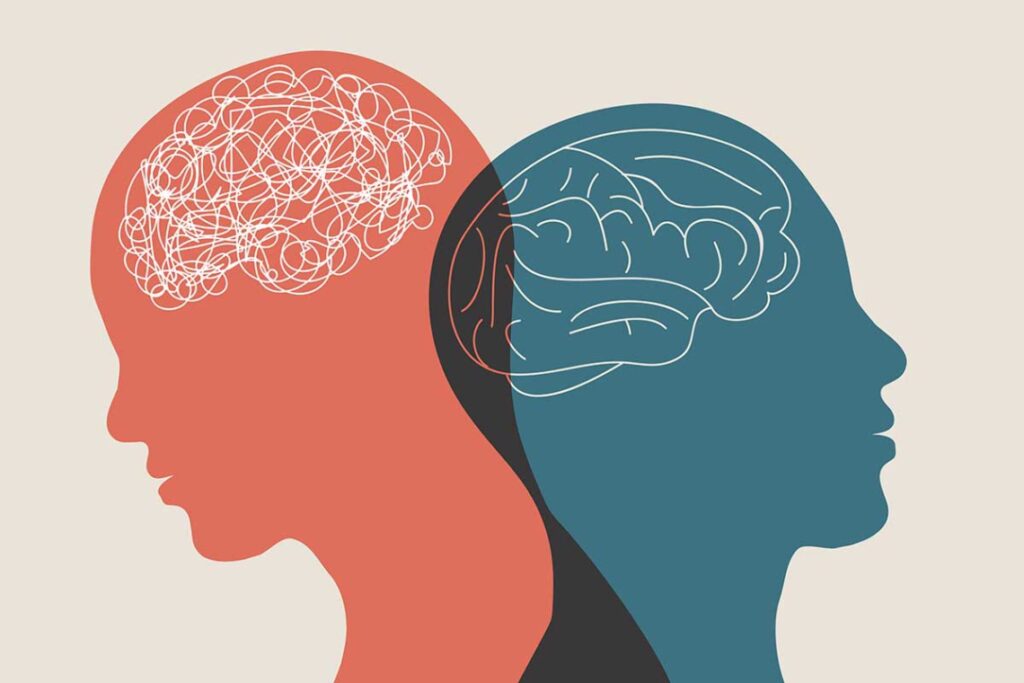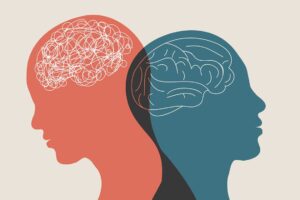
Dual diagnosis pertains to individuals who simultaneously experience a substance use disorder and a mental health disorder. Optimal treatment that adequately addresses both conditions concurrently results in improved outcomes for the patient. Presented below is a summary of dual diagnosis and how treatment can assist those facing challenges with addiction and mental illness.
Understanding Dual Diagnosis
It is believed that more than 50% of individuals facing addiction also experience a mental health disorder. Anxiety, depression, bipolar disorder, and schizophrenia are among the frequently co-occurring conditions. Mental health issues can contribute to substance abuse, while prolonged drug or alcohol use can worsen symptoms of mental health disorders.
When someone has a dual diagnosis, treating just one condition while ignoring the other will be ineffective. The disorders feed into each other. Integrated treatment that targets both the addiction and mental illness together has been shown to produce better results.
Components of Dual Diagnosis Treatment
Collaboration among mental health professionals, addiction specialists, and other providers is crucial for the success of dual diagnosis programs. These programs incorporate various treatment components such as:
- A comprehensive evaluation and assessment aim to identify mental health and addiction problems, along with any other elements that may be influencing the disorders. This collected information is then utilized to develop a customized treatment plan.
- Medical stabilization involves the initial step of undergoing a medically supervised detoxification process, which is aimed at safely eliminating drugs or alcohol from the patient’s body. This process is conducted under the close supervision of medical professionals who effectively manage and alleviate any withdrawal symptoms that may arise.
- Psychotherapy encompasses a range of therapeutic techniques aimed at assisting patients in addressing thought patterns, behaviors, underlying issues, coping mechanisms, and motivation for recovery. Prominent methods include cognitive behavioral therapy, contingency management, and motivational interviewing.
- Medication – Prescription medications may be used to help manage withdrawal, prevent relapse, or treat psychiatric symptoms. Medications are prescribed by a psychiatrist or dual diagnosis doctor.
- Case management involves the coordination of care among various providers, aiding individuals in accessing community resources, and providing assistance with recovery-related matters such as transportation and housing.
- The treatment team collaborates with patients to create an aftercare plan that includes various options such as 12-step programs, support groups, outpatient treatment, sober living homes, and follow-up appointments, ensuring continued care post-program completion.
Incorporating additional therapies like art therapy, music therapy, equine therapy, and adventure therapy can assist patients in expressing themselves in a healthy manner. Complementing traditional treatment approaches, holistic treatments such as yoga, meditation, acupuncture, and nutritional counseling can be beneficial. Dual diagnosis programs can be personalized, offering a range of therapies tailored to meet the unique needs and preferences of each patient.
Benefits of Integrated Dual Diagnosis Treatment
According to research, the utilization of integrated treatment results in decreased substance use rates, enhanced mental health, higher treatment retention, and fewer hospitalizations. By simultaneously addressing both disorders, individuals are equipped with the necessary skills to effectively manage symptoms and sustain sobriety in the long run. Adequate treatment empowers those with a dual diagnosis to attain fulfilling and stable lives in recovery. The integrated approach has demonstrated superior effectiveness compared to treating each disorder separately.
If you or someone you love struggles with addiction and mental illness, specialized dual diagnosis treatment can help pave the path to healing.





